Regulierung internationaler Finanzmärkte und Banken
Diese Forschungsgruppe analysiert Ursachen und Konsequenzen von internationalen Aktivitäten von Banken sowie den regulatorischen Rahmen, innerhalb dessen globale Banken operieren.
International aktive Banken können eine effiziente internationale Kapitalallokation vereinfachen und zur internationalen Risikoteilung beitragen. Allerdings können sie auch Instabilitäten generieren und zu einer Übertragung von Schocks über nationale Grenzen hinaus beitragen. Dies ist einer der Gründe für die aktuelle Re-Regulierung des internationalen Bankensystems.
Die Forschungsgruppe trägt auf drei verschiedenen Wegen zur Literatur bei. Erstens analysiert die Gruppe empirisch, warum internationale Banken global aktiv sind und wie Schocks im Finanzsystem übertragen werden. Zweitens untersucht die Gruppe das Entstehen von systemischen Risiken und Ungleichgewichten im integrierten Bankenmarkt und die sich daraus ergebenden Konsequenzen für die Realwirtschaft. Drittens werden die Auswirkungen von Änderungen bezüglich der Bankenaufsicht und Bankenregulierung analysiert, mit einem besonderen Fokus auf dem europäischen Integrationsprozess
IWH-Datenprojekt: International Banking Library
Forschungscluster
Wirtschaftliche Dynamik und StabilitätIhr Kontakt

- Abteilung Finanzmärkte
PROJEKTE
07.2017 ‐ 12.2022
Die politische Ökonomie der europäischen Bankenunion
Europäischer Sozialfonds (ESF)
Ursachen für nationale Unterschiede in der Umsetzung der Bankenunion und daraus resultierende Auswirkungen auf die Finanzstabilität.
01.2015 ‐ 12.2017
Dynamic Interactions between Banks and the Real Economy
Deutsche Forschungsgemeinschaft (DFG)
Referierte Publikationen

Political Influence and Financial Flexibility: Evidence from China
in: Journal of Banking and Finance, February 2019
Abstract
This paper investigates how political influence affects firms’ financial flexibility and speed of adjustment toward target leverage ratios. We find that at the macro level, firms in environments with high political advantages, proxied by provincial affiliations with heads of state as well as political status and party rank of provincial leaders, adjust faster. At the micro level, firms that are state-owned, have CPC members as executives, or bear low exposure to changes in political uncertainty adjust faster. When interacted, the micro-level political factors have more significant impact.
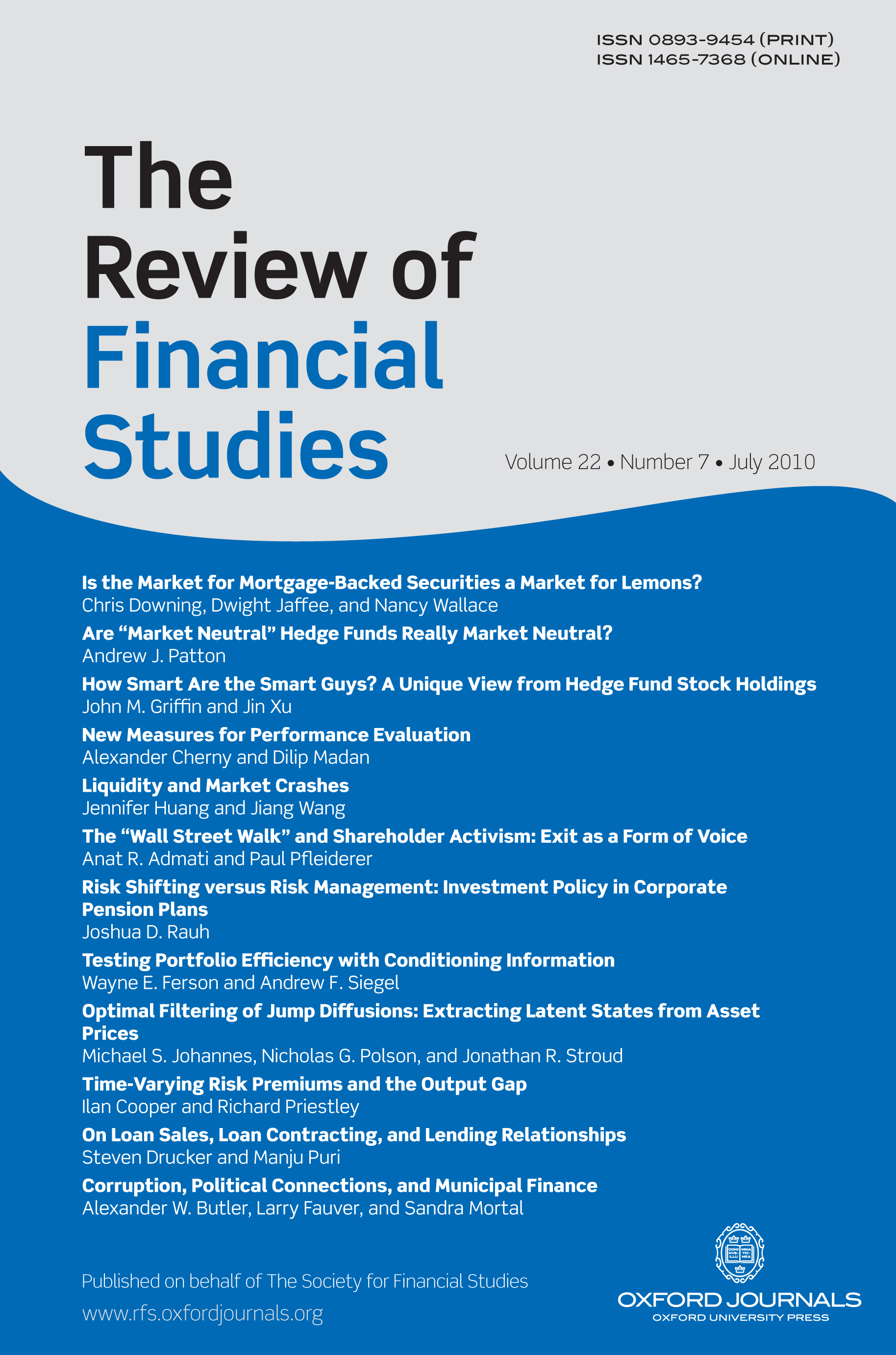
Banks Response to Higher Capital Requirements: Evidence from a Quasi-natural Experiment
in: Review of Financial Studies, Nr. 1, 2019
Abstract
We study the impact of higher capital requirements on banks’ balance sheets and their transmission to the real economy. The 2011 EBA capital exercise is an almost ideal quasi-natural experiment to identify this impact with a difference-in-differences matching estimator. We find that treated banks increase their capital ratios by reducing their risk-weighted assets, not by raising their levels of equity, consistent with debt overhang. Banks reduce lending to corporate and retail customers, resulting in lower asset, investment, and sales growth for firms obtaining a larger share of their bank credit from the treated banks.
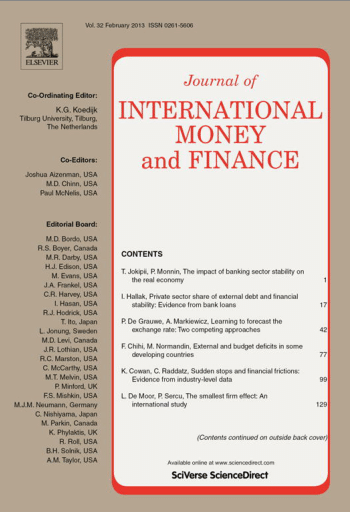
Big Fish in Small Banking Ponds? Cost Advantages and Foreign Affiliate Presences
in: Journal of International Money and Finance, 2018
Abstract
We distinguish cost advantage at home from cost advantage vis-à-vis incumbent banks in destination markets to explain the probability of foreign bank affiliate lending. We combine detailed affiliate lending data of all German banks with public bank micro data from 59 destination markets. The likelihood to operate foreign affiliates depends positively on both types of cost advantage. Only cost advantage at home is economically significant. Generally, risk, return, and unobservable bank traits explain a larger share of the variation in foreign affiliate operations. Less profitable, more risky, and larger banks are more likely to operate affiliates abroad.

Hidden Gems and Borrowers with Dirty Little Secrets: Investment in Soft Information, Borrower Self-selection and Competition
in: Journal of Banking and Finance, Nr. 2, 2018
Abstract
This paper empirically examines the role of soft information in the competitive interaction between relationship and transaction banks. Soft information can be interpreted as a valuable signal about the quality of a firm that is observable to a relationship bank, but not to a transaction bank. We show that borrowers self-select to relationship banks depending on whether their observed soft information is positive or negative. Competition affects the investment in learning the soft information from firms by relationship banks and transaction banks asymmetrically. Relationship banks invest more; transaction banks invest less in soft information, exacerbating the selection effect.
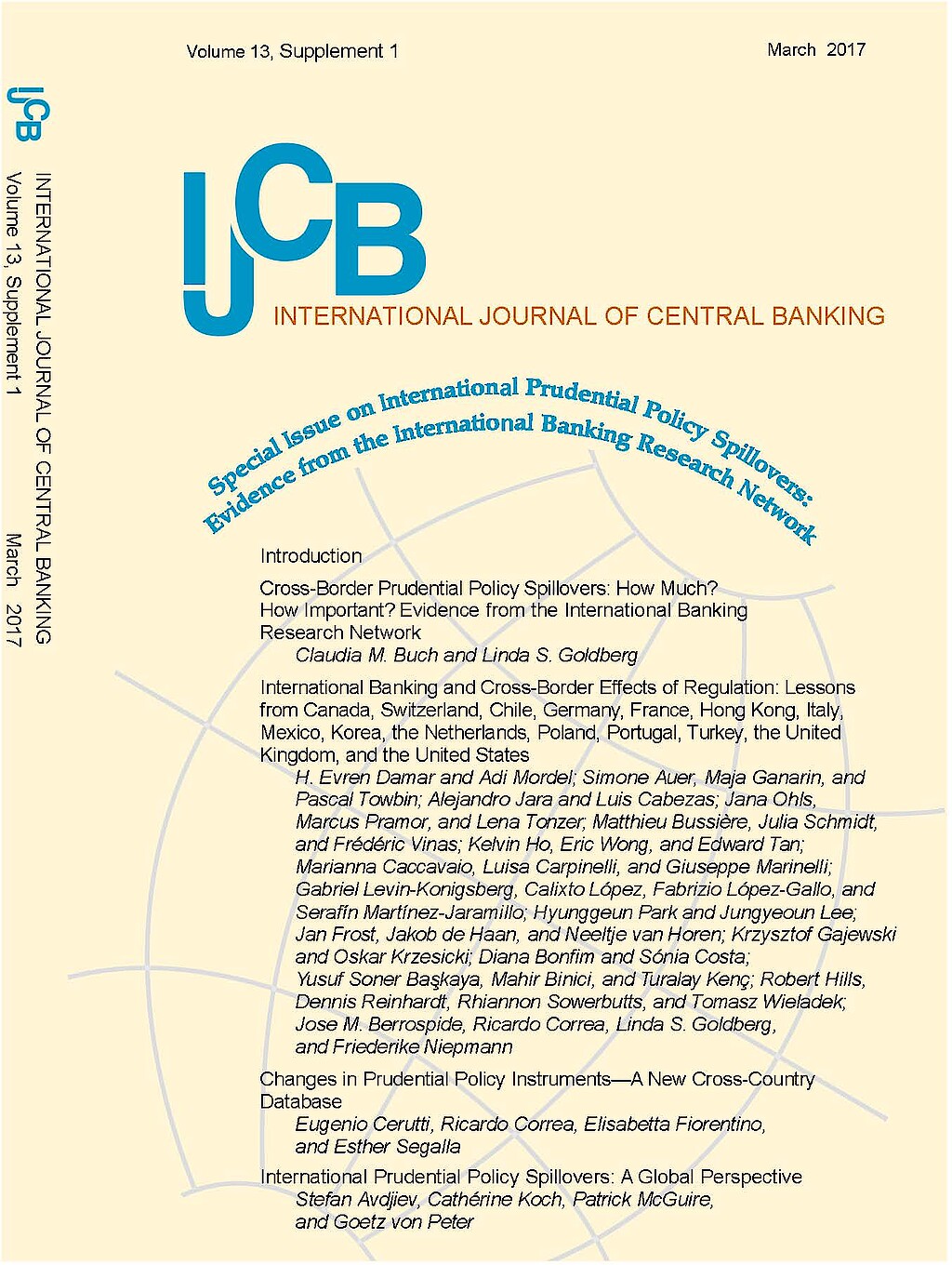
International Banking and Cross-border Effects of Regulation: Lessons from Germany
in: International Journal of Central Banking, Supplement 1, March 2017
Abstract
We analyze the inward and outward transmission of regulatory changes through German banks’ (international) loan portfolio. Overall, our results provide evidence for international spillovers of prudential instruments. These spillovers are, however, quite heterogeneous between types of banks and can only be observed for some instruments. For instance, domestic affiliates of foreign-owned global banks reduce their loan growth to the German economy in response to a tightening of sector-specific capital buffers, local reserve requirements, and loan-to-value ratios in their home country. Furthermore, from the point of view of foreign countries, tightening reserve requirements is effective in reducing lending inflows from German banks. Finally, we find that business and financial cycles matter for lending decisions.
Arbeitspapiere
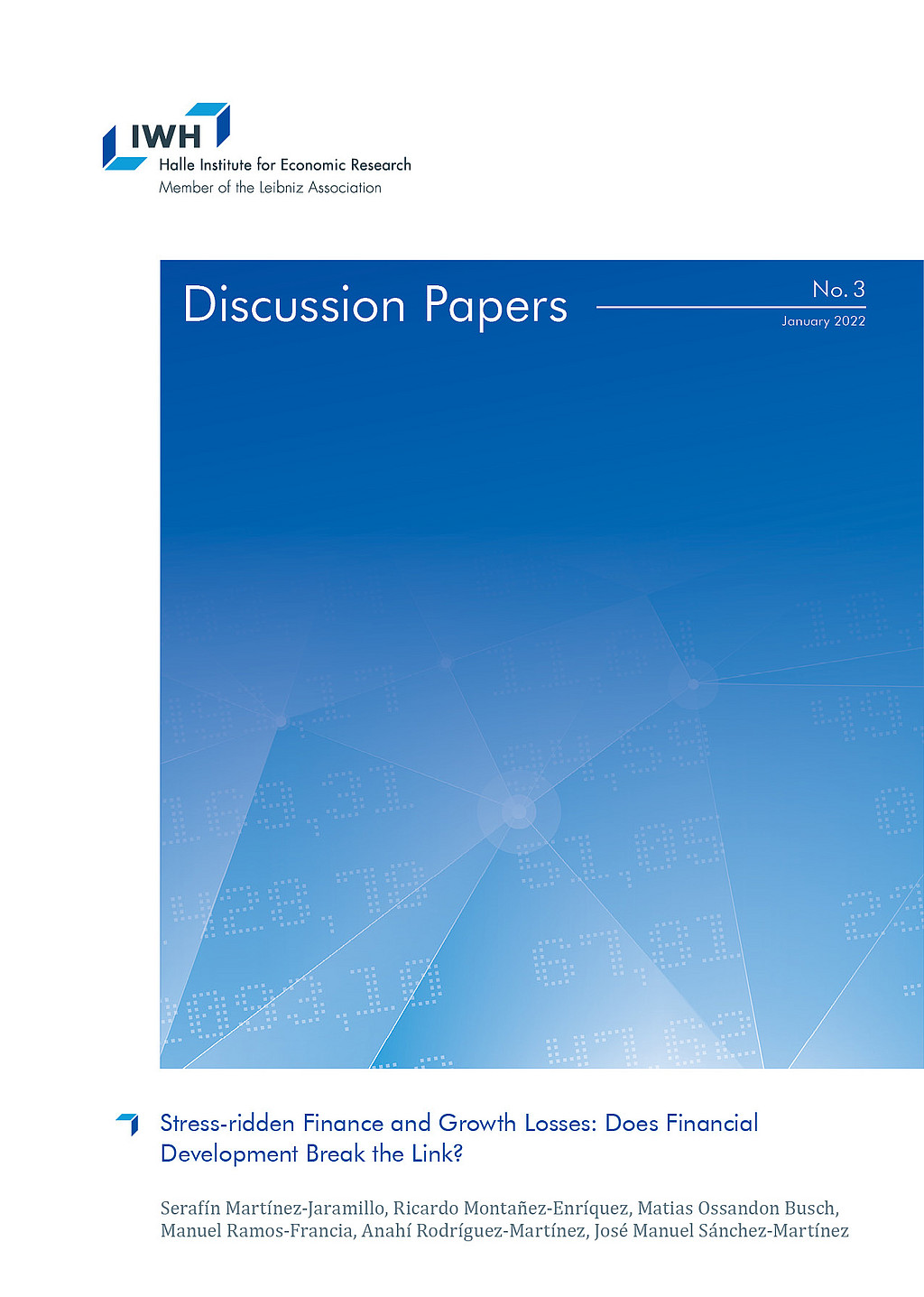
Stress-ridden Finance and Growth Losses: Does Financial Development Break the Link?
in: IWH Discussion Papers, Nr. 3, 2022
Abstract
Does financial development shield countries from the pass-through of financial shocks to real outcomes? We evaluate this question by characterising the probability density of expected GDP growth conditional on financial stability indicators in a panel of 28 countries. Our robust results unveil a non-linear nexus between financial stability and expected GDP growth, depending on countries’ degree of financial development. While both domestic and global financial factors affect expected growth, the effect of global factors is moderated by financial development. This result highlights a previously unexplored channel trough which financial development can break the link between financial (in)stability and GDP growth.
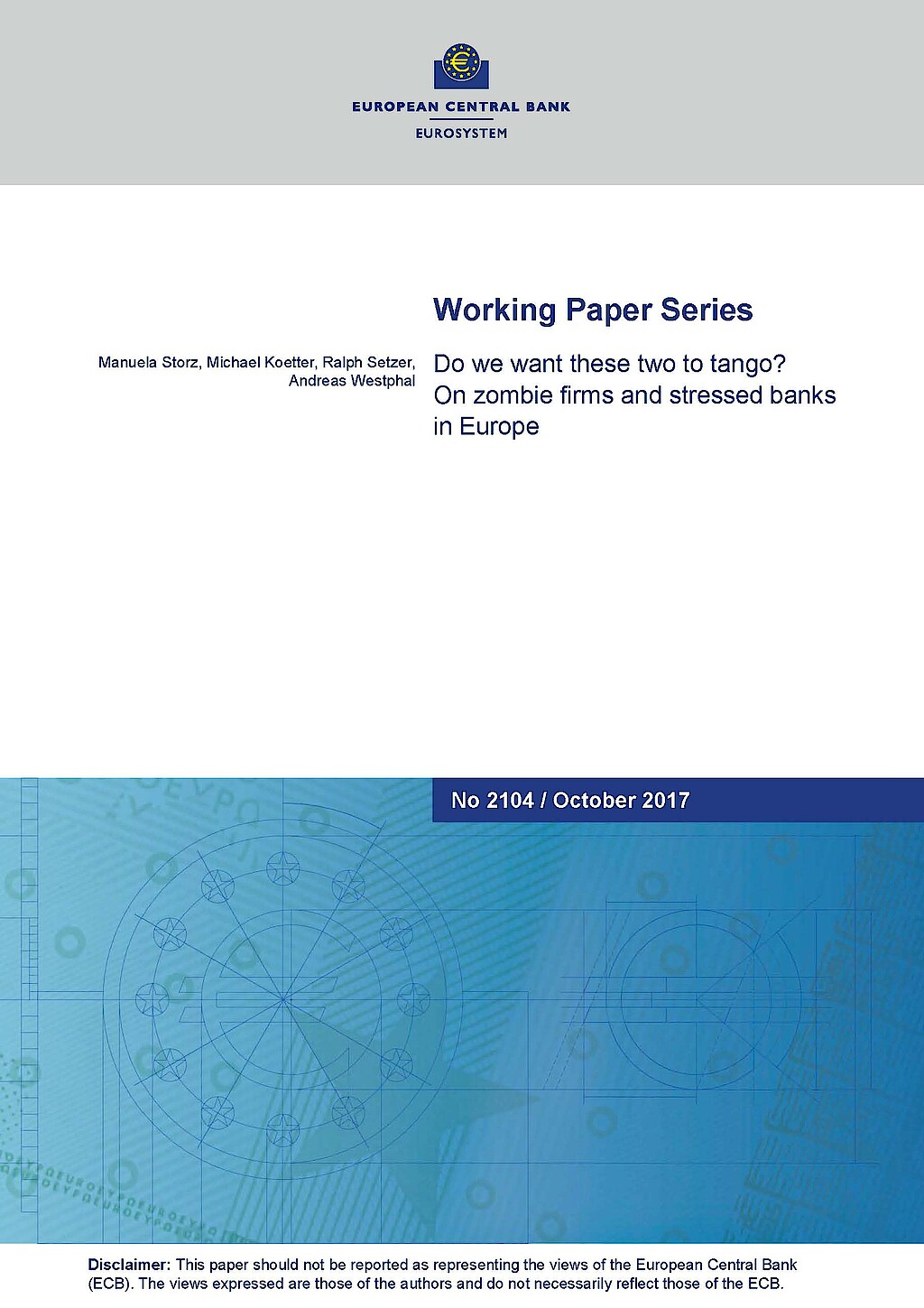
Do We Want These Two to Tango? On Zombie Firms and Stressed Banks in Europe
in: ECB Working Paper, 2017
Abstract
We show that the speed and type of corporate deleveraging depends on the interaction between corporate and financial sector health. Based on granular bank-firm data pertaining to small and medium-sized enterprises (SME) from five stressed and two non-stressed euro area economies, we show that “zombie” firms generally continued to lever up during the 2010–2014 period. Whereas relationships with stressed banks reduce SME leverage on average, we also show that zombie firms that are tied to weak banks in euro area periphery countries increase their indebtedness even further. Sustainable economic recovery therefore requires both: deleveraging of banks and firms.
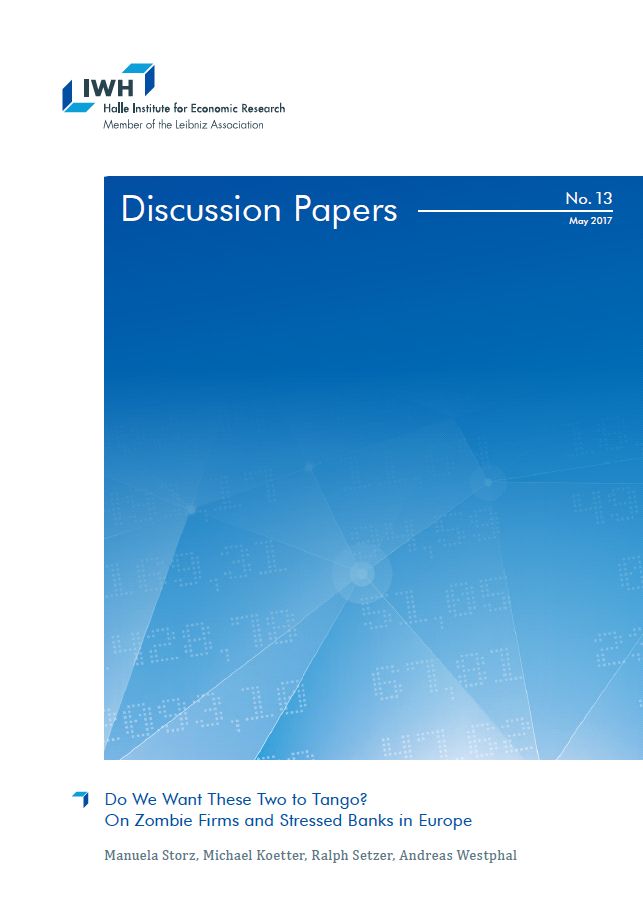
Do We Want These Two to Tango? On Zombie Firms and Stressed Banks in Europe
in: IWH Discussion Papers, Nr. 13, 2017
Abstract
We show that the speed and type of corporate deleveraging depends on the interaction between corporate and financial sector health. Based on granular bank-firm data pertaining to small and medium-sized enterprises (SME) from five stressed and two non-stressed euro area economies, we show that “zombie” firms generally continued to lever up during the 2010–2014 period. Whereas relationships with stressed banks reduce SME leverage on average, we also show that zombie firms that are tied to weak banks in euro area periphery countries increase their indebtedness even further. Sustainable economic recovery therefore requires both: deleveraging of banks and firms.

Inside Asset Purchase Programs: The Effects of Unconventional Policy on Banking Competition
in: ECB Working Paper Series, Nr. 2017, 2017
Abstract
We test if unconventional monetary policy instruments influence the competitive conduct of banks. Between q2:2010 and q1:2012, the ECB absorbed Euro 218 billion worth of government securities from five EMU countries under the Securities Markets Programme (SMP). Using detailed security holdings data at the bank level, we show that banks exposed to this unexpected (loose) policy shock mildly gained local loan and deposit market shares. Shifts in market shares are driven by banks that increased SMP security holdings during the lifetime of the program and that hold the largest relative SMP portfolio shares. Holding other securities from periphery countries that were not part of the SMP amplifies the positive market share responses. Monopolistic rents approximated by Lerner indices are lower for SMP banks, suggesting a role of the SMP to re-distribute market power differentially, but not necessarily banking profits.
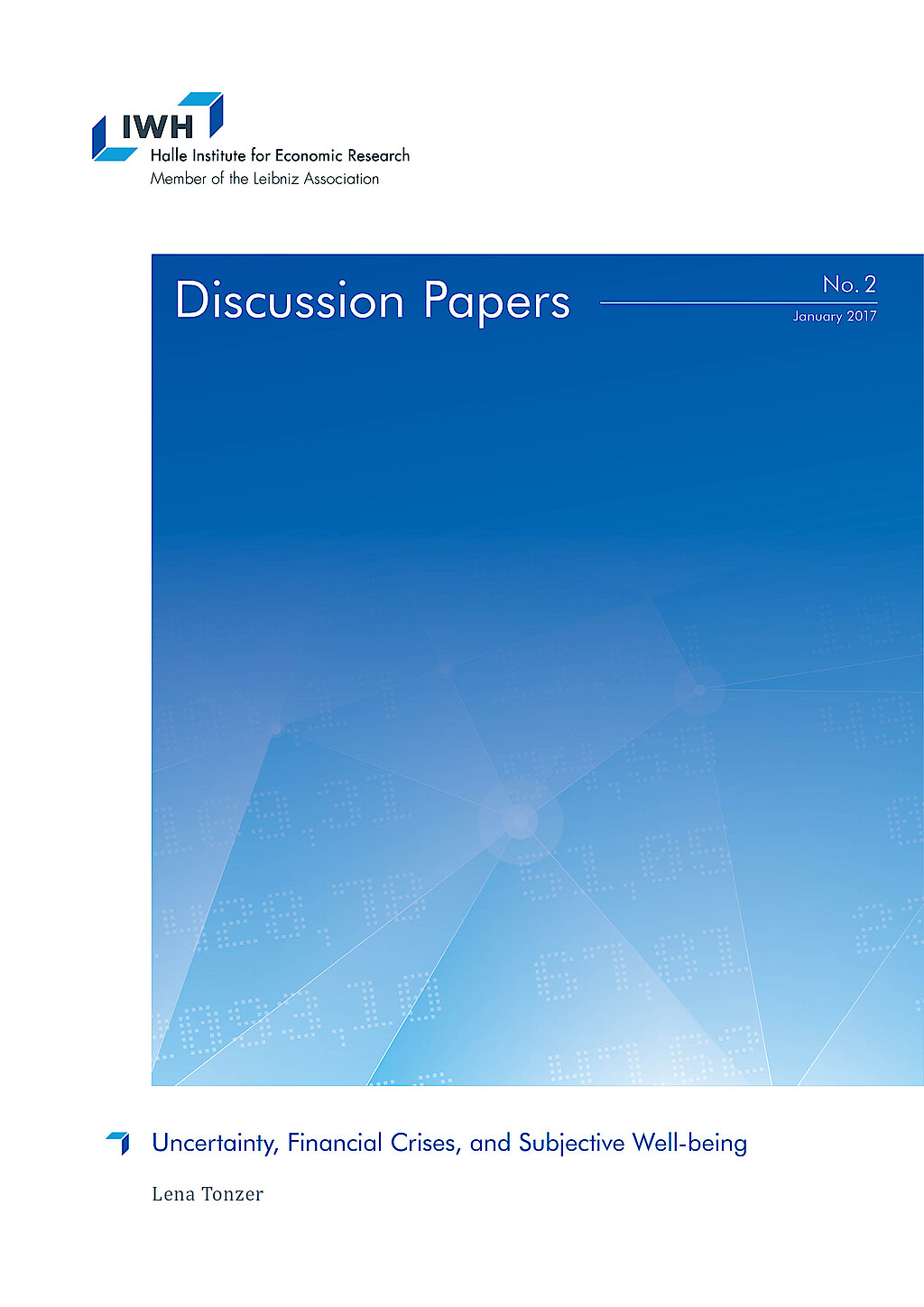
Uncertainty, Financial Crises, and Subjective Well-being
in: IWH Discussion Papers, Nr. 2, 2017
Abstract
This paper focuses on the effect of uncertainty as reflected by financial market variables on subjective well-being. The analysis is based on Eurobarometer surveys, covering 20 countries over the period from 2000 to 2013. Individuals report lower levels of life satisfaction in times of higher uncertainty approximated by stock market volatility. This effect is heterogeneous across respondents: The probability of being unsatisfied is higher for respondents who are older, less educated, and live in one of the GIIPS countries of the euro area. Furthermore, higher uncertainty in combination with a financial crisis increases the probability of reporting low values of life satisfaction.















